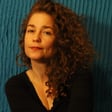
Elyse Kelly and her Neon Zoo
Elyse Kelly is an award-winning director based in Washington DC. Her strength and passion is storytelling through an animated lens, and leading teams of world-class artists to create content that entertains, challenges and changes the hearts and minds of audiences. Elyse runs a full-service animation studio, Neon Zoo, that specializes in content for documentaries, brands, and NGOs.In 2020, Elyse was animation director on the feature documentary, In the Dark of the Valley. The film won a number of awards in festivals and was released in 2021 by MSNBC Films. In 2022 it received an Emmy nomination for Outstanding Social Issue Documentary.In 2017, Elyse co-directed Fired Up, an animated short that depicts the origins of President Obama’s “fired up, ready to go” chant. Released on the final day of the Obama presidency, the film was featured by The Atlantic and has been viewed more than 8 million times.Elyse Kelly over 15 years of experience in animation and film, working for clients such as Netflix, the ACLU, The Atlantic, Sesame Workshop, Sony Music, the United Nations Foundation, and Disney Research. Her films have won awards and been exhibited in festivals worldwide, including Sundance, Tribeca, Annecy, Zagreb, and OIAF.
Check out Elyse's work in:
Smart Justice
Emmy nominated In the Dark of the Valley
Speech Wars
Miss Americana
Visit the Neon Zoo Animation Studio homepage and follow Elyse on @e.l.y.s.e.k.e.l.l.y



















